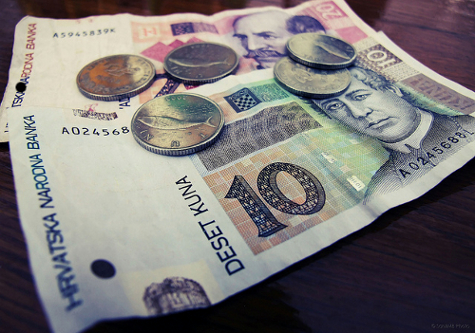
While the media spotlight has been focused on the uprisings in Libya and other Arab countries, violent protests have also erupted in Europe. Over the past weeks thousands of protesters have taken to the streets in Croatia’s capital Zagreb, urging their government to step down.
Protesters are accusing the governing HDZ Party (Croatian Democratic Union), as well as the opposition, of incompetence in dealing with economic stagnation and endemic corruption. It seems that many Croatians are not only disillusioned with their government, but with the political system as a whole. Moreover, a recent poll suggests that only 49% of Croats are still in favor of joining the EU as their dissatisfaction with domestic politics translates into a skeptical attitude towards Brussels.
In light of the ongoing political unrest, the question of whether Croatia is ready and willing to become the 28th member state of the European Union remains unclear.
The Mafia and the State
Croatia is now only few steps away from fulfilling the EU’s accession criteria: Out of 35 accession negotiation chapters, 28 have been closed. The chapter dealing with reform of the legal system, however, is proving to be a hard nut to crack. In a country plagued by corruption, distinguishing politicians from criminals is not always easy. According to the Index of Economic Freedom, Croatia’s economy and politics are rated as corrupt as Tunisia’s.
The power of the mafia in Croatia hit international headlines when Ivo Pukanic, editor of Nacional, Croatia’s most popular newspaper, was assassinated in autumn 2008. Many think that he was killed in retaliation for publishing a story on cigarette smuggling in the Balkans. In the aftermath of Pukanic’s death, Goran Flauder, a Croatian journalist, told the BBC: “We like to say that where Italy is a state with a mafia, Croatia is a mafia with a state.”
Since then, however, the Croatian government seems to have been working hard to establish an independent judiciary, and has started to take a tough stance on corruption in an attempt to meet the EU’s accession demands. Several former politicians, including ex-Prime Minister Ivo Sanader, are now facing corruption and fraud charges, something many Croatians didn’t ever expect to be possible. Yet, Croatian judges still have to prove that they are actually willing to convict Sanader and others like him.
Moreover, legal reform is far from complete. Amongst other problems, a backlog of nearly 800,000 unsolved criminal cases is currently clogging the country’s judicial system; as it often takes years until a case is taken to trial, the rule of law is being seriously hampered.
The EU’s Dilemma
At the moment, the EU is facing a dilemma: Either it allows a country with unstable institutions to join so as to reward it for the progress made so far, or it postpones accession in light of Croatia’s shortcomings. By denying Croatia membership, however, it is possible that much-needed reforms may not continue as Croatians lose their trust in the EU. Either way, those Croatians who wish to establish a state with independent institutions and a functioning market economy will need the EU’s assistance – whether they like it or not.

